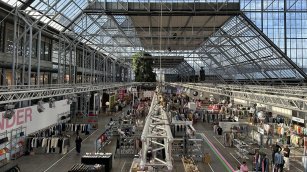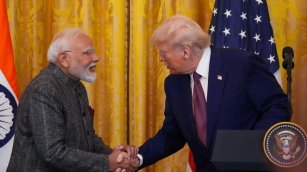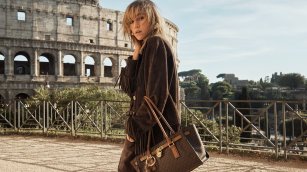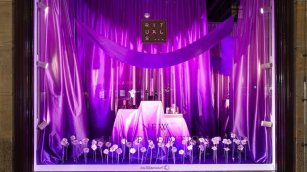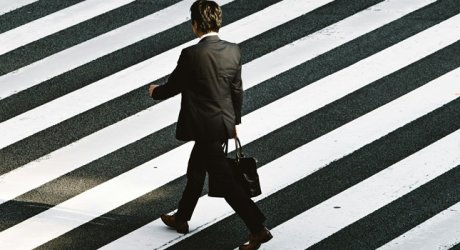Tranoï Turns to Saudi Arabia as Next Step in Global Push After Africa and South Korea
The French show consolidates its international mission in emerging markets with a Saudi showroom in Paris, the first official participation of brands supported by the Saudi Fashion Commission in the capital’s fashion week.
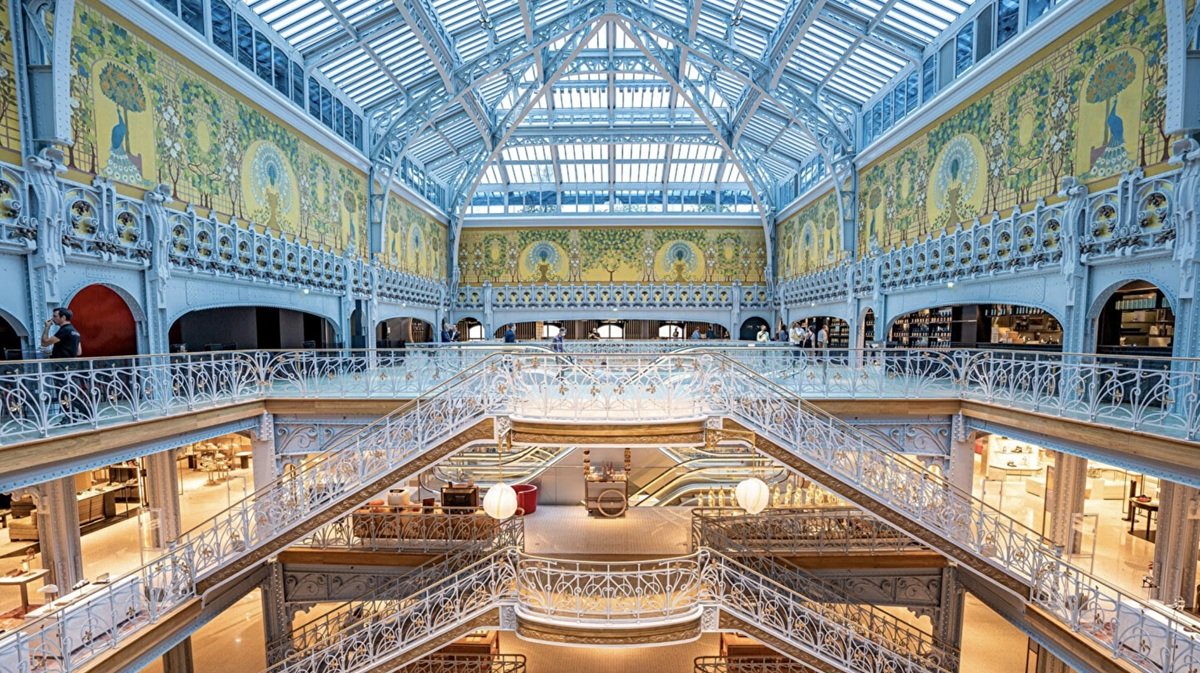

Saudi Arabia is moving to consolidate its position as a new creative hub in the global fashion industry. In a strategic move during the last Paris Men’s Fashion Week in June, the Saudi Fashion Commission selected eleven emerging brands from the Saudi 100 Brands program to land in the French capital under the umbrella of Tranoï, one of the leading shows for the promotion of emerging talent from peripheral markets.
From June 24 to 27, the department store owned by LVMH, La Samaritaine, hosted a 5,166-square-foot showroom on the banks of the Seine where these eleven Saudi firms exhibited their spring-summer 2026 collections, in the first official showcase supported by the commission on the Parisian catwalk. The operation is no coincidence. Saudi Arabia has been preparing its chessboard for years to position itself as an influential player in the global fashion sector, feeding a narrative of modernity, talent and production capacity.
Since the creation of the Saudi Fashion Commission in 2020, under the umbrella of the Saudi Ministry of Culture, the country has intensified its efforts to make local designers visible at events such as Dubai, Milan or New York. However, Paris, as the capital with the greatest media appeal and commercial potential, was still awaiting an assault with institutional backing.
“Saudi Arabia is a hub of talent and expertise, and this showroom at La Samaritaine is a great opportunity to showcase our collections in Paris and strengthen ties with the international industry,“ said Burak Cakmak, CEO of the Saudi Fashion Commission, which led the coordination of designers during the event.
The Saudi Fashion Commission presented eleven selected brands during the Paris fashion week with the support of Tranoï
Tranoï, which acts as a discovery and visibility platform for emerging markets, dedicated an exclusive space on the fifth floor of La Samaritaine to this action. The choice of location is not anecdotal: the department store is one of the most emblematic in Paris, owned by LVMH since 2001. The mythical space raised its shutters again in 2021 after fifteen years of renovations that restored the splendor of its Art Nouveau and Art Deco architecture.
Today, with seven floors, 600 brands on offer and more than 210,000 square foot of floor space, the building has become a symbol of the luxury retail experience, where fashion, beauty, gastronomy and lifestyle coexist. Also integrating the Cheval Blanc Paris hotel, La Samaritaine is now defending its role as an aspirational showcase for both international tourists and the local public.
For their part, the eleven brands selected for this operation reflected the Saudi ambition to claim a diverse creative identity, without renouncing global influences. In the men’s and mixed terrain, brands such as 1886, which fuses sportswear, streetwear and ski references, including a collaboration with Russian brand Raketa Watches, to build a contemporary and functional closet, stood out. Awaken, meanwhile, conveys progressive messages through shirts, leather garments and quilted fabrics in black; while Hajruss revisits men’s tailoring with noble materials such as wool and leather, and Eleven opts for a more relaxed street language, with down jackets, caps and graphic T-shirts.
Among the most prominent names with the greatest commercial potential is Mirai, a brand with a minimalist style and sober, timeless colors that connects Japanese aesthetics with Saudi roots. “The fact of having support to present in Paris is extraordinary and the brand has aroused great interest among buyers, thanks to the premium design and accessible positioning”, explained to Modaes its founders, detailing that the prices of its garments made of natural materials range between forty and two hundred euros, so the offer “is very interesting and competitive in the European market”. Another firm to take into account: RBA New York, already present in Galeries Lafayette in Dubai, known for reinterpreting regional garments in light cottons and fluid shapes.
Mirai and RBA New York are two of the leading brands in Saudi menswear
On the women’s side, all the designers agreed on the relevance of the commission’s support to make the international leap that will push them to go beyond luxury couture designs or the local client. “Paris is the best place to find international buyers that fit Saudi fashion,“ the creators defended.
Razan Alazzouni, the oldest and most commercially established brand in the region, stands out with handcrafted embroidery applied to dresses, tops and kaftans, including children’s versions.Rebirth, meanwhile, opts for fluid beachwear, with threads and straps in the air and a commitment to “the region’s craftsmanship, little known abroad”.

With a production based in the heart of Barcelona, Reem Alkanhal builds, for his part, long and timeless silhouettes with fabrics such as brocade or silk taffeta. Waad Aloqaili explores semiannual couture with embroidered dresses with innovative cuts; while Yasmina Q works a modest wardrobe in shades of scarlet, off-white or blue, with a contemporary touch.
Most of these emerging brands on the Western scene are not so emerging in their country of origin and have already walked the runway at the Red Sea Fashion Week in Jeddah, an event also promoted by the Saudi Fashion Commission to strengthen the international projection of its creative fabric. Now, Paris represents a qualitative leap: the city functions as a thermometer of legitimacy for the fashion business, and the Saudi presence, channeled through Tranoï, seeks precisely to reinforce that legitimacy with buyers, distributors and specialized press.
Tranoï has already woven synergies with markets such as Africa, Japan and Korea
The alliance with Tranoï is not trivial. The show has cemented its reputation as a launching pad for designers from emerging markets, integrating brands from the Seoul and Tokyo fashion weeks, and also cooperating in Africa with Canex, the platform supported by the African Export-Import Bank to promote African fashion in Europe.
Saudi Arabia, for its part, with its narrative of transformation and economic diversification, finds in Tranoï the ideal partner for its country branding strategy. Beyond building local talent, the market aims to develop a business ecosystem that encompasses training, manufacturing, supply chains and, ultimately, its own positioning on the global industry map.
The Parisian showcase is, in that sense, the first visible move of a long-range project that aims to turn Saudi Arabia into a relevant player not only as a luxury consumer, but also as a generator of fashion, creativity and added value. Likewise, this July, the commission will sign the first participation of a fashion delegation in the Portugal Fashion event in Porto.
Likewise, Saudi Arabia’s debut of its first official showroom during Paris Fashion Week underlines the ambition to enter the league of countries that not only consume fashion, but also create and export it, with a view to forging a story of prestige, diversity and sophistication. And Tranoï, with its experience in building creative bridges between continents, acts as a catalyst for this Saudi ambition, which, step by step, wants to earn its place on the world stage.


